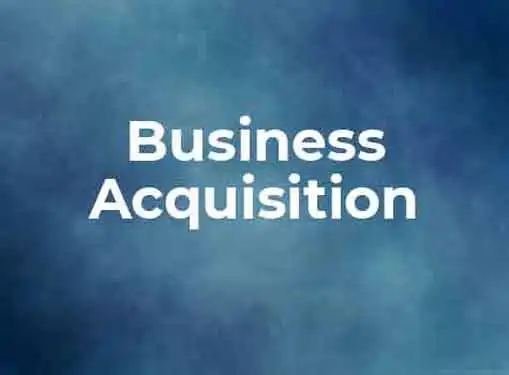Selling a Business
Ways to Buy a Business
One of the biggest challenges of buying an existing business is how to structure the transaction. We discuss the two most popular ways to sell a business.
There are essentially two ways to buy a business.

You can either buy the assets or you can buy the stock.
Purchasing the Corporate Stock of a Business
Stock acquisitions involves either direct stock purchases from all the selling shareholders or a merger of two entities.
However, when you purchase corporate stock to buy a business, there is always an unknown potential contingent liability.
Maybe the seller's corporation owed money to a creditor and never told you about it or maybe they never paid their income taxes.
If you buy the stock of the corporation, those liabilities become your liabilities.
Now, in some cases, you can get a "hold harmless" agreement from the seller that indemnifies you against such undeclared liabilities. But it's up to you to tell the creditors about this clause and to try and get the seller to honor the clause. That can cost valuable time and money as you may have to pursue the issue in court.
As such, when possible, many business buyers prefer to purchase the assets of the business instead of purchasing the stock. This form of business sale minimizes the risks of contingent liabilities.
Purchasing the Assets of a Business
When buying a company's assets, you can buy intangible assets, such as the name of the firm, customer lists, patents, trademarks and contracts. Importantly, you can opt to not buy certain assets that you don't want.
When purchasing the assets of a business, there is an implicit tax advantage to the buyer. That's because they can "mark up" their newly acquired assets to fair market values and start depreciating them. This can reduce corporate taxes.
Of course, the buyer's gain may be the seller's loss. Most sellers of a business prefer selling stock because that form of business sale gives them tax-favored capital gains treatment.
At the end of the day, experienced corporate attorneys and tax advisors should be consulted to determine the optimal business sale structure. The sale structure must appropriately reflect the specific needs of the buyer and the selling company's shareholders.
Share this article
Additional Resources for Entrepreneurs





Conversation Board
We greatly appreciate any advice you can provide on this topic. Please contribute your insights on this topic so others can benefit.